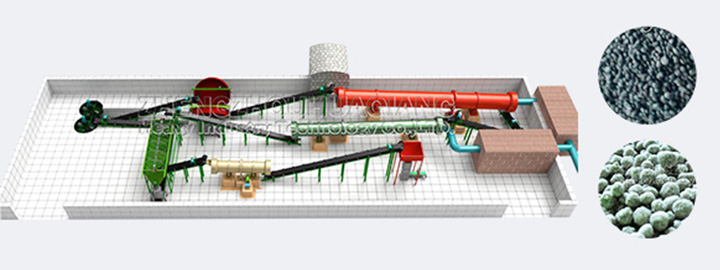Composting is the core link in the organic fertilizer production line, which directly determines the nutrient content and maturity of the fertilizer. Mastering scientific composting methods and making good use of professional equipment can efficiently convert raw materials such as straw and livestock and poultry manure into high-quality organic fertilizers, providing nutrient guarantees for agricultural planting.

Pile management requires compost turning machines and thermometers. The recommended pile height is 1.2-1.5 meters, the width is 2-3 meters, and the length can be adjusted as needed. This specification not only ensures air permeability, but also helps maintain the pile temperature. Use an inserted thermometer to monitor the temperature in the pile. When it rises to above 55℃, start the compost turning machine to turn the material. Its rotating claws can turn the bottom material to the surface to achieve uniform distribution of heat and oxygen, and avoid local high temperature killing beneficial microorganisms; when the temperature is below 50℃, reduce the number of compost turnings to allow microorganisms to reproduce rapidly in a suitable environment. At the same time, monitor the moisture content of the raw materials. The ideal range is 50%-60% (the hand holds the material tightly into a ball and there are slight drops of water seeping out of the fingertips). If the moisture is insufficient, it can be replenished through the spray system, and if it is too much, dry materials can be added to adjust.
The judgment of maturity can be assisted by a screening machine. High-quality mature compost is dark brown, has no odor, loose texture, and visible white mycelium. The drum screener machine is used to grade the compost to remove incompletely mature lumps and ensure the consistency of the finished product. If there is a stench or it becomes black and sticky, the raw material ratio needs to be adjusted again with a mixer, and then the compost turner is used to enhance the maturity.
Scientific composting combined with professional equipment can effectively kill pathogens, insect eggs and weed seeds, and improve the safety of organic fertilizers. Following these key points, organic fertilizers with balanced nutrients can be stably produced, which helps the sustainable development of agriculture and is the core competitiveness of organic fertilizer production.